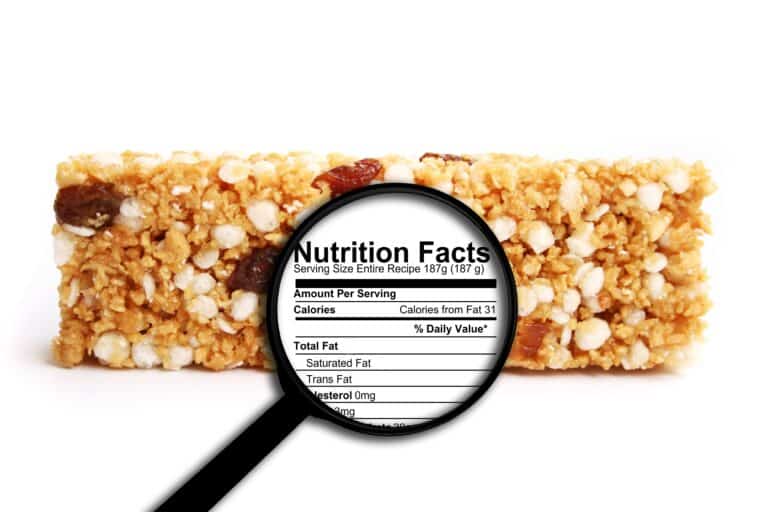Protein is a vital nutrient that plays a crucial role in various bodily functions, including growth, repair, immune function, and metabolism. It is essential for muscle building, weight loss, and overall health. Understanding the significance of protein and its functions in the body is key to optimizing your diet and achieving your health goals.
What is Protein?
Protein is a macronutrient that serves as the building block of life. It is necessary for cell growth, tissue repair, and overall maintenance of the body. Proteins are made up of amino acids, with nine essential amino acids that must be obtained from food sources. Complete proteins, found in animal-based foods like eggs, fish, and dairy, contain all nine essential amino acids. Plant-based foods like beans, lentils, and quinoa provide protein but may be incomplete sources, requiring individuals on a vegetarian or vegan diet to combine different protein sources to meet their dietary needs.
What Does Protein Do for Your Body?
Protein supports cellular growth and repair by providing essential building blocks for cells to regenerate and repair damaged tissues. It also facilitates enzymatic and hormonal functions, acting as catalysts for biochemical reactions and regulating metabolism. Additionally, protein plays a crucial role in immune defense, producing antibodies that fight infections and diseases.
Why Do You Need to Have Protein in Your Diet: 12 Health Benefits of Protein
- Builds and Maintains Muscle Mass
- Aids in Weight Loss and Fat Burning
- Boosts Metabolism
- Supports Bone Health
- Improves Skin, Hair, and Nail Health
- Enhances Recovery from Injuries and Surgeries
- Regulates Blood Sugar Levels
- Strengthens the Immune System
- Supports Healthy Blood Pressure Levels
- Prevents Muscle Loss with Age (Sarcopenia)
- Reduces Cravings and Late-Night Snacking
- Enhances Cognitive Function and Brain Health
How Much Protein Do You Need?
Protein requirements vary based on age, activity level, and overall health. The Recommended Dietary Allowance (RDA) suggests 0.8 grams of protein per kilogram of body weight for the general population. Athletes, older adults, pregnant and breastfeeding women, children, and adolescents may require higher protein intake to support their specific needs.
6 Protein Facts That Might Surprise You
- Your Body is Made Up of More Protein Than You Think
- Protein Helps Regulate Hormones and Metabolism
- High-Protein Diets Aid in Fat Loss
- Your Body Doesn’t Store Protein Like Fats or Carbs
- Protein Can Improve Mood and Cognitive Function
- Some Proteins Act as Antioxidants
10 Facts About Protein: Some Additional Facts
- The word “protein” comes from the Greek word “proteios,” meaning “primary” or “of first importance.”
- Proteins are classified into four structural types: primary, secondary, tertiary, and quaternary.
- Enzymes, which control biochemical reactions, are proteins.
- After water, proteins are the second most abundant compound in the body.
- Eggs contain high-quality protein sources.
- The human body can synthesize 11 amino acids.
- Men generally require more protein than women.
- Protein deficiency can weaken the immune system.
- The body does not store protein like fats or carbs.
- Collagen is the most abundant protein in the body, responsible for skin elasticity and joint health.
PC Note
While protein is essential, balance is key in maintaining overall health. Focus on nutrient-dense whole foods, mindful eating, and regular exercise for optimal well-being. Consult experts, listen to your body, and build a sustainable lifestyle for long-term health benefits.
The Final Word
Protein is not just for muscle-building; it plays a vital role in metabolism, immune function, and overall health. Tailor your protein intake to your individual needs and goals, and prioritize whole foods over processed options for a balanced diet. Remember, health is a journey, so focus on consistency and moderation for lasting results.
Frequently Asked Questions (FAQs)
Q: What does protein do for your body?
A: Protein is responsible for muscle growth, tissue repair, immune function, and hormone production.Q: How much protein do I need per day?
A: The Recommended Dietary Allowance (RDA) is 0.8 grams per kilogram of body weight for the general population.Q: What are the best sources of protein?
A: Protein-rich foods include lean meats, fish, eggs, dairy, legumes, nuts, seeds, and plant-based options like tofu and quinoa.Q: Is too much protein harmful?
A: Excess protein, especially from processed sources, may strain the kidneys and lead to digestive discomfort.Q: Does protein help with weight loss?
A: Yes, protein boosts metabolism, reduces hunger, and preserves muscle mass during calorie restriction.Q: Can you build muscle without protein?
A: Muscle growth requires adequate protein for tissue repair and regeneration.Q: Are plant-based proteins as effective as animal proteins?
A: Yes, with proper combination to ensure a complete amino acid profile.Research Sources
- Physiology of Proteins – Stat Pearls
- Complete Protein
- A high-protein diet for reducing body fat: mechanisms and possible caveats
- Protein: The Nutrition Source
- Effect of Protein Supplementation Combined With Resistance Training on Muscle Mass, Strength and Function in the Elderly: A Systematic Review and Meta-Analysis
- Protein and Amino Acids: Recommended Dietary Allowances
- Dietary Protein and Muscle Mass
- Protein, weight management, and satiety
- Culinary strategies to manage glycemic response in people with type 2 diabetes: A narrative review
- Effect of a High Protein Diet at Breakfast on Postprandial Glucose Level at Dinner Time in Healthy Adults
- Thermic effect of food and sympathetic nervous system activity in humans
- Dietary protein and skeletal health: a review of recent human research
- Sarcopenia: Aging-Related Loss of Muscle Mass and Function
- Dietary protein and blood pressure: a systematic review
- Effects of protein, monounsaturated fat, and carbohydrate intake on blood pressure and serum lipids
In conclusion, protein is a fundamental nutrient that should be part of a well-balanced diet to support overall health and well-being. Understanding its role, sources, and benefits can help you make informed choices for optimal nutrition and fitness.


